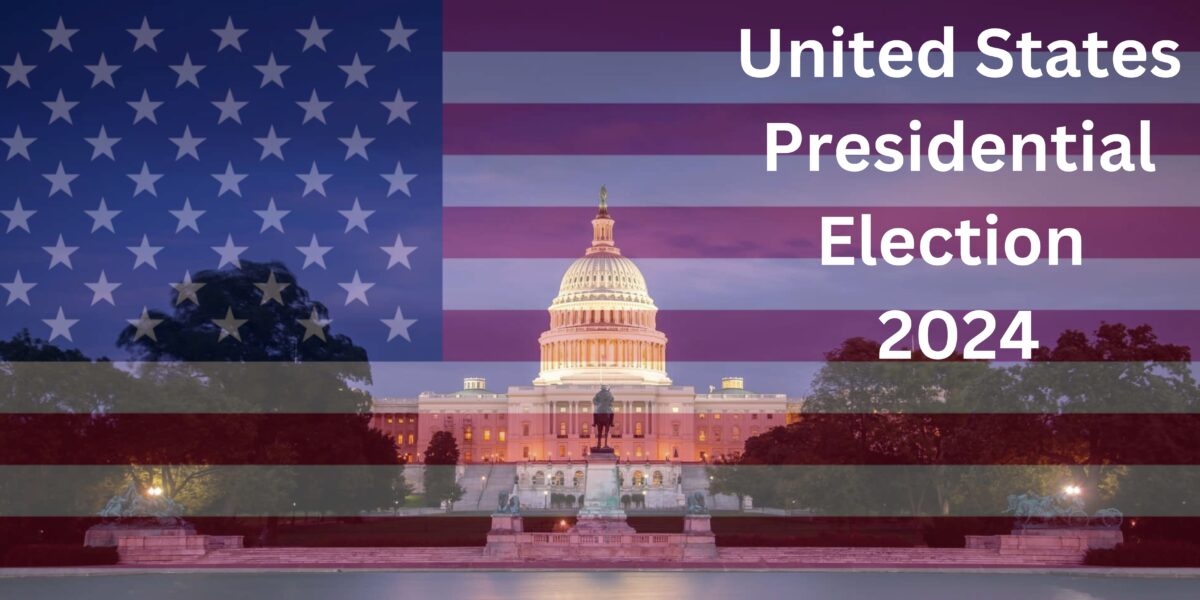
Abraham Lincoln is one of the most revered figures in American history, known for his remarkable leadership during one of the nation’s most turbulent times. Born into humble beginnings on February 12, 1809, in a one-room log cabin in Kentucky, Lincoln’s life is a testament to the power of perseverance, intellect, and moral conviction.
Lincoln’s childhood was marked by hardship and tragedy. His family faced financial struggles, and he lost his mother at a young age. Despite these challenges, Lincoln had an insatiable thirst for knowledge and learning. He was largely self-educated, voraciously reading any books he could get his hands on. This thirst for knowledge would serve as the foundation for his later political and legal career.
As a young man, Lincoln worked various jobs, including as a rail-splitter and store clerk, all while nurturing his ambition for a career in law and politics. His sharp mind and integrity earned him respect among his peers, and he soon found himself immersed in Illinois politics.
Lincoln’s political journey was defined by his steadfast opposition to slavery. He believed fervently in the principles of equality and liberty, as enshrined in the Declaration of Independence. His debates with Stephen A. Douglas during the Illinois Senate race brought him national attention and showcased his powerful oratory skills and moral clarity.
In 1860, Lincoln achieved a historic victory, winning the presidency as the candidate of the newly formed Republican Party. His election precipitated the secession of Southern states and plunged the nation into the Civil War. Lincoln faced the monumental task of preserving the Union and ending the scourge of slavery.
Throughout the Civil War, Lincoln faced immense challenges. He grappled with the strategic demands of the conflict while confronting the profound moral questions it posed. His leadership during this time was characterized by both resolve and compassion. Lincoln’s Emancipation Proclamation in 1863 was a watershed moment, signaling the end of slavery in America and underscoring his commitment to human dignity.
Lincoln’s legacy extends far beyond his presidency. His Gettysburg Address, delivered in 1863, remains one of the most revered speeches in American history, articulating the ideals of democracy and national unity. His second inaugural address, delivered in 1865 as the war drew to a close, urged reconciliation and healing in a fractured nation.
Tragically, Lincoln would not live to see the full realization of his vision for America. On April 14, 1865, he was assassinated by John Wilkes Booth, a Confederate sympathizer. His death was a profound loss for the nation, leaving behind a legacy of courage, wisdom, and moral leadership.
Abraham Lincoln’s life teaches us valuable lessons about resilience, empathy, and the enduring power of moral conviction. His journey from a humble log cabin to the presidency serves as an inspiration to all who strive for a more just and equitable society. Lincoln’s words and deeds continue to resonate today, reminding us of the ideals upon which our nation was founded and the enduring pursuit of a “government of the people, by the people, for the people.”
Lincoln’s enduring legacy is multifaceted and continues to shape the fabric of American society. Here are some key aspects of his impact:
- Emancipation and the Abolition of Slavery: Lincoln’s steadfast commitment to ending slavery culminated in the Emancipation Proclamation, which declared all slaves in Confederate-held territory to be free. While this executive order did not immediately free all slaves, it fundamentally shifted the moral landscape of the Civil War and set the stage for the eventual passage of the 13th Amendment, permanently abolishing slavery in the United States.
- Preservation of the Union: Lincoln’s unwavering determination to preserve the Union guided his actions throughout the Civil War. Despite enormous pressures and setbacks, he navigated the complexities of war and politics with strategic acumen and moral clarity. His leadership ensured that the United States remained united and did not succumb to the forces of disunion.
- Advancement of Democracy and Civil Rights: Lincoln’s vision of America as a land of equal opportunity and liberty continues to inspire movements for civil rights and social justice. His defense of democratic principles, including government accountability and the rule of law, laid the groundwork for subsequent struggles for equality and inclusion.
- Profound Moral Leadership: Lincoln’s moral leadership during a time of national crisis exemplifies the qualities of integrity, empathy, and resilience. He possessed a deep sense of duty to the American people and a profound moral compass that guided his decisions, even in the face of immense challenges.
- Enduring Influence on American Identity: Lincoln’s legacy has become deeply ingrained in the American psyche. He symbolizes the ideals of perseverance, humility, and self-improvement that are central to the American ethos. His life story serves as a testament to the possibilities of individual achievement and societal progress.
- Legacy of Leadership and Statesmanship: Lincoln’s leadership style continues to serve as a model for effective governance and crisis management. His ability to navigate political divisions and forge consensus during a time of profound national turmoil underscores the importance of leadership grounded in principle and pragmatism.
- Icon of Resilience and Perseverance: Lincoln’s personal journey is a testament to the power of resilience and determination. From his early years marked by poverty and loss to the immense pressures of leading a nation torn apart by civil war, Lincoln’s ability to endure and rise above adversity inspires individuals facing their own challenges.
- Commitment to Unity and Reconciliation: In his second inaugural address, Lincoln famously called for “malice toward none” and “charity for all,” emphasizing the importance of healing and reconciliation in the aftermath of conflict. His emphasis on national unity and the common good remains relevant in today’s polarized political climate.
- Influence on Constitutional Law and Legal Thought: Lincoln’s tenure as president and his approach to constitutional issues have left a lasting impact on American jurisprudence. His interpretation of executive powers during wartime and his defense of civil liberties in the face of crisis have shaped the evolution of constitutional law.
- Cultural and Literary Legacy: Lincoln’s life and presidency have inspired a rich cultural legacy, permeating literature, art, and popular culture. Countless books, films, and artworks continue to explore his character, leadership, and legacy, reflecting the enduring fascination with his complex persona.
- Global Symbol of Freedom and Democracy: Beyond the borders of the United States, Lincoln is celebrated as a global symbol of freedom and democracy. His commitment to the principles of human rights and equality resonates with people around the world, inspiring movements for liberty and justice.
- Educational and Historical Significance: Lincoln’s life and legacy hold immense educational value, offering insights into American history, politics, and society. His presidency and the Civil War era are critical subjects of study, providing valuable lessons in leadership, governance, and the struggle for civil rights.
- Role Model for Moral Courage: Abraham Lincoln’s unwavering moral courage in the face of immense challenges serves as a powerful example for leaders and individuals alike. His commitment to justice and equality, even when it was politically risky or unpopular, underscores the importance of standing firm in defense of fundamental principles.
- Advocate for Education and Self-Improvement: Lincoln’s own pursuit of education and self-improvement highlights the transformative power of learning and intellectual curiosity. Despite limited formal schooling, he cultivated a deep understanding of law, literature, and philosophy, demonstrating the importance of lifelong learning.
- Inspiration for Social and Political Activism: Lincoln’s legacy continues to inspire social and political activism aimed at advancing civil rights and equality. His dedication to the cause of emancipation and his vision of a more just society continue to resonate with advocates for racial and social justice.
- Symbol of National Unity and Resilience: As a symbol of national unity and resilience, Abraham Lincoln embodies the spirit of a nation that endured and emerged stronger from a profound internal crisis. His leadership during the Civil War underscores the importance of national cohesion and collective resolve in times of adversity.
- Subject of Historical Inquiry and Interpretation: Lincoln’s life and presidency remain subjects of intense historical inquiry and interpretation. Historians continue to explore his policies, speeches, and personal beliefs, shedding new light on his character and legacy and deepening our understanding of the Civil War era.
- Source of Inspirational Quotes and Sayings: Lincoln’s eloquent speeches and memorable quotes continue to resonate with people across generations. From the stirring words of the Gettysburg Address to the profound reflections of his second inaugural address, Lincoln’s rhetoric has left an indelible mark on the American literary and oratorical tradition.
- Legacy of Civil Discourse and Political Civility: Lincoln’s commitment to civil discourse and political civility offers a valuable lesson for contemporary politics. Despite vehement disagreements, he sought common ground and engaged respectfully with adversaries, emphasizing the importance of dialogue and compromise in a democratic society.
- Enduring Popularity and Iconic Status: Abraham Lincoln’s enduring popularity and iconic status reflect his lasting impact on American culture and society. He remains one of the most admired and revered figures in American history, celebrated for his humility, wisdom, and humanity.
- Impact on American Identity: Abraham Lincoln’s legacy is deeply intertwined with the American identity. His leadership during one of the nation’s darkest periods solidified his place as a pivotal figure in shaping the course of American history. Lincoln’s unwavering dedication to preserving the Union and advancing the cause of freedom has become an integral part of the American narrative.
- Champion of Human Rights: Lincoln’s commitment to human rights and equality continues to resonate globally. His principled stance against slavery and his efforts to promote liberty serve as a beacon for advocates of social justice and human dignity around the world.
- Continued Relevance in Modern Politics: The principles and values espoused by Abraham Lincoln remain relevant in contemporary political discourse. His emphasis on unity, reconciliation, and national healing in times of division provides valuable lessons for addressing contemporary challenges.
- Educational Legacy: Abraham Lincoln’s life story is a cornerstone of American education, offering valuable insights into history, leadership, and governance. Students and scholars continue to study his speeches, writings, and policies, drawing inspiration from his profound wisdom and moral clarity.
- Influence on Leadership Theory: Lincoln’s leadership style has had a lasting impact on leadership theory and practice. His ability to communicate effectively, inspire others, and navigate complex political landscapes offers valuable lessons for aspiring leaders in various fields.
- Symbol of Hope and Resilience: Lincoln’s rise from humble beginnings to the highest office in the land symbolizes the American Dream—a testament to the possibilities of hard work, perseverance, and determination. His resilience in the face of personal and national adversity continues to inspire individuals facing their own challenges.
- Cultural Iconography: Abraham Lincoln’s iconic image and stature have been immortalized in art, literature, and popular culture. His distinctive profile and towering legacy evoke a sense of reverence and admiration, contributing to his enduring popularity.
- Legacy of Civil War Reconciliation: Lincoln’s efforts to heal the wounds of the Civil War laid the groundwork for national reconciliation and reconstruction. His emphasis on forgiveness and unity set an example for post-conflict societies grappling with the challenges of reconciliation.
- Role Model for Statesmanship: Lincoln’s statesmanship and diplomacy have left an indelible mark on the practice of governance. His ability to navigate political complexities with integrity and foresight serves as a model for leaders seeking to bridge divides and forge consensus.
- Source of Inspiration for Future Generations: Above all, Abraham Lincoln’s legacy serves as a timeless source of inspiration for future generations. His enduring commitment to justice, equality, and the fundamental principles of democracy continues to inspire individuals to strive for a better, more inclusive world.
Abraham Lincoln’s impact on American history and culture is profound and multifaceted. His legacy transcends partisan divides and continues to resonate with people of all backgrounds and beliefs. By studying Lincoln’s life and legacy, we gain not only a deeper understanding of the past but also insights into the enduring values that shape our collective aspirations for a more just and inclusive society.
Abraham Lincoln’s life is a testament to the transformative power of leadership driven by principles of justice, equality, and compassion. His journey from a log cabin to the White House represents the quintessential American success story. By embracing Lincoln’s legacy, we can aspire to uphold the ideals that define our shared humanity and strive for a better future for all. As we reflect on his life and accomplishments, we are reminded of the timeless relevance of his words: “With malice toward none, with charity for all, with firmness in the right as God gives us to see the right, let us strive on to finish the work we are in, to bind up the nation’s wounds.”
In conclusion, Abraham Lincoln‘s legacy transcends the boundaries of time and place, continuing to inspire and resonate with people from diverse backgrounds and walks of life. His life story exemplifies the transformative power of leadership guided by moral conviction, empathy, and a steadfast commitment to the ideals of freedom, equality, and national unity. By embracing Lincoln’s legacy, we not only honor his memory but also reaffirm our shared commitment to the enduring values that define the American experience. As we reflect on Lincoln’s life and legacy, we are reminded of the profound impact that individuals can have on history and society through courage, integrity, and unwavering dedication to the common good. Abraham Lincoln’s legacy is a timeless reminder of the transformative potential of leadership rooted in principle and empathy, offering enduring lessons for generations to come—an inspiration for generations past, present, and future.
To Read Election Procedure of Selecting US President here.

